Ron Stallworth Interview
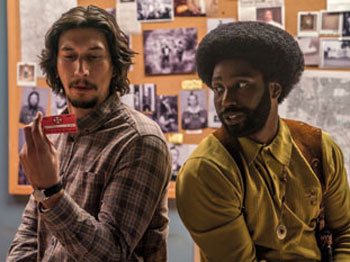
Ron Stallworth: In His Own Words
Cast: Adam Driver, Topher Grace, Ryan Eggold, John David Washington, Laura Harrier
Director: Spike Lee
Genre: Biography, Crime
Rated: MA
Running Time: 136 minutes
Synopsis: From visionary filmmaker Spike Lee comes the incredible true story of an American hero.
It's the 1970's, a time of great social upheaval as the struggle for Civil Rights rages on. Ron Stallworth (John David Washington) becomes The First African-American Detective on The Colorado Springs Police Department, but his arrival is greeted with skepticism and open hostility by The Department's rank and file. Undaunted, Stallworth resolves to make a name for himself and a difference in his community. He bravely sets out on a dangerous mission: infiltrate and expose the Ku Klux Klan.
Posing as a racist extremist, Stallworth contacts the group and soon finds himself invited into its inner circle. He even cultivates a relationship with the Klan's Grand Wizard, David Duke (Topher Grace), who praises Ron's commitment to the advancement of White America. With the undercover investigation growing ever more complex, Stallworth's colleague, Flip Zimmerman (Adam Driver), poses as Ron in face-to-face meetings with members of the Hate Group, gaining insider's knowledge of a deadly plot. Together, Stallworth and Zimmerman team up to take down the organization whose real aim is to sanitize its violent rhetoric to appeal to The Mainstream.
BlacKkKlansman
Release Date: August 16th, 2018
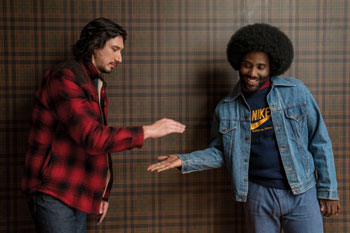 Interview with Ron Stallworth
Interview with Ron Stallworth
Question: Why did you decided to write the book Black Klansman?
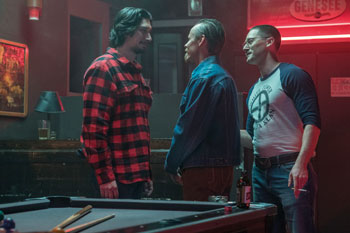 Question: What was the atmosphere in Colorado Springs in October of '78?
Question: What was the atmosphere in Colorado Springs in October of '78? Ron Stallworth: There was no racial activity going on in Colorado Springs, nothing significant outside of any other community in the country. Colorado Springs was and is a military town. There are four military installations. You get a wide, diverse population group coming in and out of the town, and the fact that this particular ad in the newspaper cropped up, it stuck out. There had never been anything like that. Being a black man, I immediately seized on the fact that this is unique, this is something that's worth exploring. But there was nothing in the town itself that was triggering it.
Question: What was the most exciting part of this case?
Ron Stallworth: Making a fool of David Duke. That's probably the most exhilarating because David Duke had a master's degree in political science from Louisiana State University. He is one hell of a debater. He was billing himself as the image of the new Klan, a newly resurgent, reorganized Klan who didn't go around using the so-called N-word"a term that it hates, by the way. You can't use any term to soften that word. He never went around in public using the N-word. He said it in private a lot, but not in public. That was part of his image reconstruction. He didn't wear his Klan robes in public, that was part of his image reconstruction. And he marketed the Klan, best way to describe it, he marketed the Klan that he was involved in much like Donald Trump brands his name. So, he was not a dumb individual, but the fact that he and I were interacting with each other over the phone, I, at the time, only had a high school diploma, and I'm going up against this guy with a master's degree. It was a battle of wits over the phone, and quite frankly I outwitted him. I got a lot of thrill out of that. I still do.
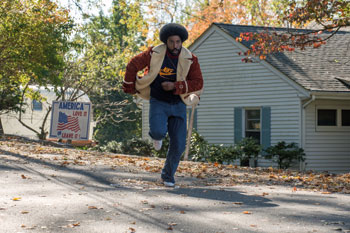 Question: What were your thoughts on Topher's portrayal of David Duke?
Question: What were your thoughts on Topher's portrayal of David Duke? Ron Stallworth: It's an eerie feeling listening to Topher on the big screen because he has the uncanny knack of being able to sound like David Duke. He sounded like the David Duke that I dealt with in 1978. Even the makeup made him look very similar to the David Duke of that time period.
Question: Did you have to practice voices with the detective who pretended to be you in person?
Ron Stallworth: There was no attempt to disguise my voice. You have to understand, one of the dynamics of undercover work is you keep as true to your true self, your personality, as possible. The reason being, when you're dealing with somebody in an undercover capacity, they could trip you up if you're assuming an identity that's too far removed from who you actually are. So, when you're undercover, you go about doing what you do in the normal way. People who say"as I was told in the beginning"you can't pull this investigation off because they'll immediately recognize the difference in a black man's voice versus a white man, my response to them was, What does a black man sound like? How am I so distinctly different in my speech pattern, my voice inflection, from a white man? That reality kinda slapped them in the face, and once they understood that they couldn't justify that, we were able to move this investigation forward.
Question: Did watching the film take you back a little?
Ron Stallworth: I chuckled watching events that I had been involved in being portrayed on the big screen. I remembered those moments vividly. I mean, everything that happened is very vivid in my mind. It was a very surreal experience to be sitting there and watching that chapter in my life unfold, to hear my name spoken and to recognize that somebody thought that this was a story worthy of being told"and to realise that it has become a political statement on this country. All I did was plan on writing a book. I didn't plan on making a big political statement about racial relations, Trump's America or anything like that. Spike did a masterful job of connecting those dots.
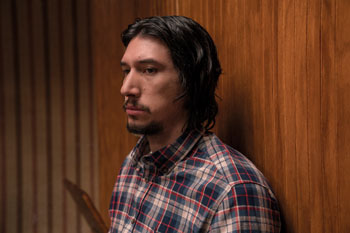 Question: Were you able to visit set during production?
Question: Were you able to visit set during production? Ron Stallworth: Spike brought us to Brooklyn for the read-through, my wife and I. John David had a lot of questions about character development, how I felt here, how I felt there, what did I wear, how did I dress, did I know how to dance, and was I a good dancer back in the disco days? I held my own. Spike told everybody to put me on speed dial, and they had my number to contact me whenever they wanted.
Question: What was it like working with Spike?
Ron Stallworth: I find him to be very honest and real. There's no pretense about him. He says what's on his mind. He doesn't care what people think. As one of the producers told me when Spike got a hold of the project, he said, 'It's Spike's world, and we all live in it.' I'm appreciative of him seeing a value in my story to wanna make it into a movie and I'm very pleased with the end result. I mean, who can be upset by Spike Lee directing a story about your life?
BlacKkKlansman
Release Date: August 16th, 2018
MORE





